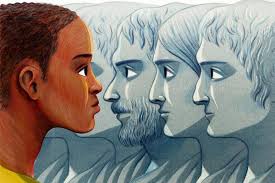
Trends Are Only Part of the Story
Prominent in recent news reports is the not-surprising disclosure that the U.S. is less Christian, and that fewer Americans choose to be a part of any religion.
It’s not surprising because the country has been trending that way for years. Anyway, a new study by the Pew Research Center, which surveyed more than 35,000 people, found that 70 percent of Americans say they are Christian. That compares with 78 percent in 2007. And, the number of people calling themselves atheist and agnostic has nearly doubled in the last seven years.
“The decrease of religious feeling seems especially pronounced among young adults, but also includes people of all ages, ethnicities, incomes and educational backgrounds,” according to a recent National Public Radio report.
The Very Rev. Gary Hall, dean of the National Cathedral in Washington, D.C., says the survey shows a majority of the nation still identifies as religious. But he tells NPR’s Scott Simon that organized religion is losing credibility with many.
“I see two trends,” he said. “Both of them, I think, have been going on for a long time. One of them is the increasing trend towards secularism in Western culture that really began after World War II in Europe, and it’s taken America a long time to catch up with this.
This trend is about how we in the western world have changed rather than whether religion is, or is not, doing its job. Most of us are prosperous, better educated, and more susceptible to the media and their nearly irresistible influence. It makes it hard to feel any dependence on God, and increases our indifference toward religion.
The second trend, however, “has to do with the church itself,” says Hall, “and the church’s declining credibility as a place for people to pursue their spiritual questions.”
Many people, Hall believes, are still hung up on the perceived conflict between science and religion, though both “are at some point both about big questions of origin and wonder.
“And I think, for me, I’ve always felt that it’s important for religious people to have the same kind of philosophical stance they use in their religious life as they do in the rest of their life. And a lot of times I think religion — religions — ask people to sort of turn off the scientific part of their lives and just go and kind of think about God kind of pre-scientifically.”
One of the constants in these blogs is the notion that there is no basic conflict between faith and science. They are two ways of knowing. That’s something on which religious and non-religious people should agree.
Secondly, as Hall suggests, churches have to talk about God and faith “in a grown-up way.” As I’ve written in these blogs before, that doesn’t mean we ignore Jesus’ urging to “be like little children” in pursuing faith. He means to be humble, open and trusting. But churches shouldn’t talk down to people, insist on using obsolete language and ignore the real ethical and moral dilemmas – like doubt, sexuality, the environment, violence – that people face in their daily lives.
People want to know how religion can help them deal with these questions, and churches should respond with the best their traditions have to offer without watering them down or dressing them up. And at a time when their ranks are dwindling, the clergy needs to do much more than they do now.
Being a religious leader can’t be a comfortable life. Leaders can’t feel themselves apart from and above the masses. They have to find new ways, including use of social media, to reach out to everyone, confident that religion has something important to say.
And what does religion have to say that’s important? For starters, that God exists, despite our natural inclination to doubt; that God is with us and cares for us; that being religious is part of our nature; that the centuries of believers before us are examples of how faith makes a difference in people’s lives; that the message of religion transcends trends.
In his new book, The Road to Character, New York Times columnist David Brooks tells the stories of nine people, most of them well-known, who were unselfish in pursuing goals that benefit others. Brooks holds them up as models for citizens of our age.
Guess what? Five of them practiced a religion and three others were heavily influenced by religion early in their lives. The religious background of the ninth isn’t clear.
I have no reason to doubt the Pew numbers on religious observance. But the numbers don’t tell the whole story. It’s no surprise to readers of this blog that I’m a great admirer of Pope Francis, who I believe to be among the best possible models for a religious person and church leader.
He’s among examples of religion increasing in quality if not in quantity.
Plenty of critics are eager to paint religious people as hypocritical, violent, prudish and judgmental. But it’s clear to me that religious people have had a tremendously positive influence on humankind and will continue to do so in the future. Contrary to what John Lennon sang in “Imagine,” the world would be a sorry place without religion.
Next week’s blog: Why it’s hard to buck trends.



